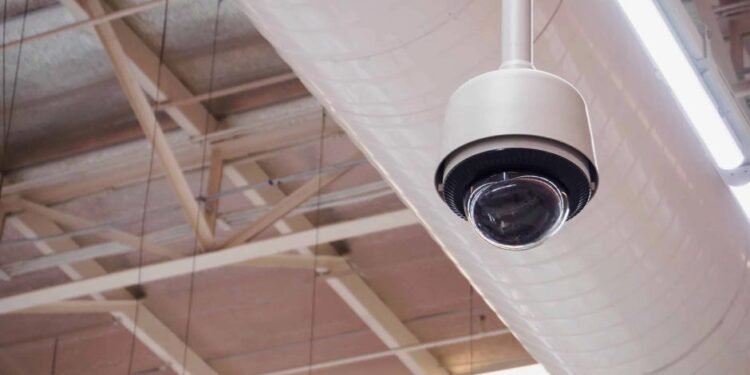In today’s rapidly evolving world, securing your assets goes beyond mere physical measures; it encapsulates a broader strategy to safeguard against sophisticated threats. Commercial security, particularly, plays a pivotal role in this defense mechanism. It’s a realm where the stakes are high, and the repercussions of breaches can be far-reaching.
Businesses, regardless of size, find themselves in a constant battle against a landscape of security threats that evolve as swiftly as the technology intended to counteract them. The narrative of security has shifted from simplistic lock-and-key methodologies to complex, integrated systems designed to protect physical and digital assets alike.
The Role of Commercial Security Installers
At the core of this fortified defense lies the expertise of commercial security installers. These professionals do not merely install security systems; they architect an ecosystem of protection tailored to the specific needs of a business. Their knowledge extends beyond generic solutions, delving into customized systems that blend seamlessly with a company’s operational flow.
For instance, the inclusion of a smoke detector commercial New Britain within a security setup exemplifies the detail-oriented approach taken to cover all potential risks. Their role is critical in designing and integrating sophisticated security infrastructures that adapt to the unique challenges presented by each commercial entity.
Key Components of a Comprehensive Security System
A comprehensive security system is akin to a well-oiled machine, with each component playing a vital role in the overall effectiveness of the security strategy. Surveillance systems, such as CCTV and digital monitoring, serve as the eyes, providing real-time oversight of premises. Access control systems fortify the barriers, ensuring that only authorized individuals can enter sensitive areas, thereby managing the flow of people and protecting against unauthorized access.
Intrusion detection systems, including advanced solutions like the smoke detector commercial New Britain, offer an additional layer of protection, detecting any unauthorized entry or suspicious activity within the premises. Together, these components form a robust security system capable of thwarting both physical and cyber threats.
The Impact of Technology on Commercial Security
The integration of technology has been a game-changer in the realm of commercial security. Advancements in artificial intelligence (AI) and machine learning have ushered in an era of predictive security measures, where systems can anticipate threats and automate responses. The Internet of Things (IoT) has expanded the capabilities of security systems, allowing for a network of interconnected devices that can communicate and react to various stimuli, enhancing the overall security posture.
This technological evolution not only improves the efficiency of security systems but also introduces adaptive measures that can evolve with the changing landscape of threats.
Choosing the Right Commercial Security Installer
Selecting the right commercial security installer is a decision that can significantly impact the effectiveness of your security strategy. The criteria for making this choice should extend beyond cost considerations to encompass the installer’s expertise, the technology they employ, and their ability to provide customized solutions. Equally important is the level of ongoing support and maintenance, as the dynamic nature of security threats necessitates continuous updates and adjustments to the security infrastructure. The partnership with a security installer should be viewed as a long-term investment in your business’s safety and resilience.
Enhanced Security Protocols and Their Implications
Advanced Surveillance Techniques: Modern surveillance has transcended traditional video monitoring, incorporating analytical software that can identify unusual patterns and behaviors indicative of potential security threats. This AI-driven approach allows for real-time detection and immediate response, significantly reducing the window of opportunity for malicious activities. For example, advanced surveillance systems can differentiate between routine and suspicious activities in crowded areas, directing security personnel’s attention to potential threats swiftly and efficiently.
Innovative Access Control Solutions: Access control systems have evolved from simple keycard entries to sophisticated biometric authentication methods, such as fingerprint and facial recognition technologies. These innovations offer a dual advantage: enhancing security by ensuring only authorized personnel gain entry and improving operational efficiency through seamless entry processes. An illustrative case is a high-security facility that employs retina scanning for access to its most sensitive areas, virtually eliminating the risk of unauthorized access due to lost or stolen keycards.
Intrusion Detection Advancements: Intrusion detection systems are now integrated with a variety of sensors and alarms to provide a comprehensive shield against unauthorized access. The sophistication of these systems lies in their ability to discern between false alarms and genuine threats, thereby minimizing disruptions and focusing security efforts where they are most needed. A notable advancement is the integration of thermal imaging with traditional intrusion detection, enabling the identification of intruders in low visibility conditions, further bolstering security measures.
The Role of IoT in Security Enhancement: The Internet of Things (IoT) has significantly expanded the capabilities of commercial security systems, enabling devices to communicate and respond to a myriad of environmental changes. This interconnectedness facilitates a more responsive and adaptable security framework. For instance, smart locks can be remotely controlled and monitored, providing businesses with flexibility in access control and the ability to react swiftly to security breaches.
By integrating these advanced technologies and methodologies, commercial security installers offer businesses a robust defense mechanism against increasingly sophisticated threats, ensuring the safety of assets and personnel with unprecedented efficiency and precision.
Conclusion
In conclusion, the critical role of commercial security installers in securing assets must be balanced. Through their expertise and the deployment of comprehensive security systems, businesses can fortify their defenses against an ever-evolving array of threats. As technology advances, the collaboration between businesses and security professionals will remain paramount in navigating the complexities of commercial security. Selecting the right security partner is not just a matter of enhancing security but an essential investment in the future viability of any commercial endeavor.













